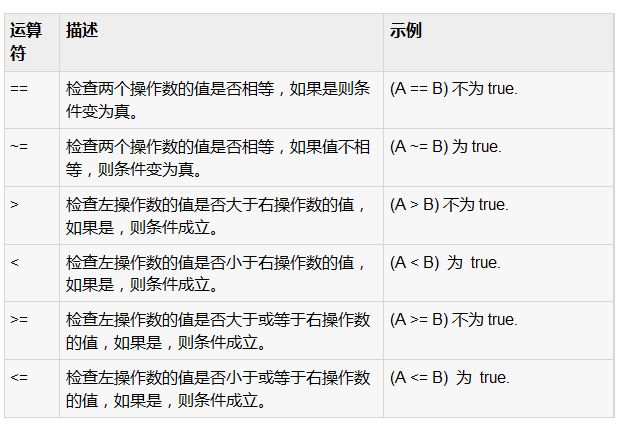萬盛學電腦網 >> 數據庫 >> mysql教程 >> sql查詢表裡重復記錄現取重復最後一條記錄方法
sql查詢表裡重復記錄現取重復最後一條記錄方法
SQL語句去掉重復記錄,獲取重復記錄
--查詢一個表中有效去掉重復的記錄,UserID為自增長主鍵,RoleID為重復字段
代碼如下 復制代碼SELECT MIN(UserID) AS UserID, RoleID FROM tmpTable GROUP BY RoleID
SELECT RoleID FROM tmpTable GROUP BY RoleID HAVING (COUNT(*) > 1)
SELECT DISTINCT * FROM tmpTable
sql語句查詢 sql server access 數據庫裡的所有表名,字段名2007年02月01日 星期四 下午 04:21SQL SERVER
查看所有表名:
代碼如下 復制代碼select name from sysobjects where type='U'
查詢表的所有字段名:
代碼如下 復制代碼
Select name from syscolumns Where ID=OBJECT_ID('表名')
select * from information_schema.tables
select * from information_schema.views
select * from information_schema.columns
ACCESS
查看所有表名:
代碼如下 復制代碼 select name from MSysObjects where type=1 and flags=0MSysObjects是系統對象,默認情況是隱藏的。通過工具、選項、視圖、顯示、系統對象可以使之顯示出來
例
如下表:
代碼如下 復制代碼CREATE TABLE `t1` (
`userid` INT(11) DEFAULT NULL,
`atime` datetime DEFAULT NULL,
KEY `idx_userid` (`userid`)
) ENGINE=InnoDB DEFAULT CHARSET=utf8;
數據如下:
代碼如下 復制代碼MySQL> SELECT * FROM t1;
+--------+---------------------+
| userid | atime |
+--------+---------------------+
| 1 | 2013-08-12 11:05:25 |
| 2 | 2013-08-12 11:05:29 |
| 3 | 2013-08-12 11:05:32 |
| 5 | 2013-08-12 11:05:34 |
| 1 | 2013-08-12 11:05:40 |
| 2 | 2013-08-12 11:05:43 |
| 3 | 2013-08-12 11:05:48 |
| 5 | 2013-08-12 11:06:03 |
+--------+---------------------+
8 ROWS IN SET (0.00 sec)
其中userid不唯一,要求取表中每個userid對應的時間離現在最近的一條記錄.初看到一個這條件一般都會想到借用臨時表及添加主建借助於join操作之類的.
給一個簡方法:
MySQL> SELECT userid,substring_index(group_concat(atime ORDER BY atime DESC),",",1) AS atime FROM t1 GROUP BY userid;
+--------+---------------------+
| userid | atime |
+--------+---------------------+
| 1 | 2013-08-12 11:05:40 |
| 2 | 2013-08-12 11:05:43 |
| 3 | 2013-08-12 11:05:48 |
| 5 | 2013-08-12 11:06:03 |
+--------+---------------------+
4 ROWS IN SET (0.03 sec)
比方說
在A表中存在一個字段“name”,
而且不同記錄之間的“name”值有可能會相同,
現在就是需要查詢出在該表中的各記錄之間,“name”值存在重復的項;
如果還查性別也相同大則如下:
代碼如下 復制代碼 Select Name,sex,Count(*) From A Group By Name,sex Having Count(*) > 1
(三)
方法一
declare @max integer,@id integer
declare cur_rows cursor local for select 主字段,count(*) from 表名 group by 主字段 having count(*) >; 1
open cur_rows
fetch cur_rows into @id,@max
while @@fetch_status=0
begin
select @max = @max -1
set rowcount @max
delete from 表名 where 主字段 = @id
fetch cur_rows into @id,@max
end
close cur_rows
set rowcount 0
方法二
有兩個意義上的重復記錄,一是完全重復的記錄,也即所有字段均重復的記錄,二是部分關鍵字段重復的記錄,比如Name字段重復,而其他字段不一定重復或都重復可以忽略。
1、對於第一種重復,比較容易解決,使用
代碼如下 復制代碼select distinct * from tableName
就可以得到無重復記錄的結果集。
如果該表需要刪除重復的記錄(重復記錄保留1條),可以按以下方法刪除
代碼如下 復制代碼select distinct * into #Tmp from tableName
drop table tableName
select * into tableName from #Tmp
drop table #Tmp
發生這種重復的原因是表設計不周產生的,增加唯一索引列即可解決。
2、這類重復問題通常要求保留重復記錄中的第一條記錄,操作方法如下
假設有重復的字段為Name,Address,要求得到這兩個字段唯一的結果集
代碼如下 復制代碼select identity(int,1,1) as autoID, * into #Tmp from tableName
select min(autoID) as autoID into #Tmp2 from #Tmp group by Name,autoID
select * from #Tmp where autoID in(select autoID from #tmp2)
最後一個select即得到了Name,Address不重復的結果集(但多了一個autoID字段,實際寫時可以寫在select子句中省去此列)
(四)
查詢重復
代碼如下 復制代碼select * from tablename where id in (
select id from tablename
group by id
having count(id) > 1
)



